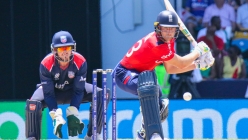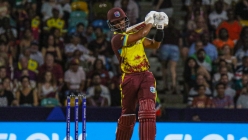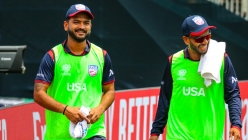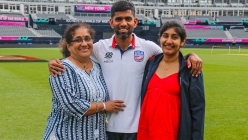IPL: Players have rules. Game has laws. But officialdom has neither?
2010 May 03 by Suresh Menon
Rules apply to the players ("Thou shalt not try to better your lot" as in the case of Ravindra Jadeja), laws to the game (leg before, size of the bat etc), but neither rules nor laws nor regulations seem to apply to officialdom.
DreamCricket.com, USA's cricket destination, is now on Facebook. Join us by becoming a fan of our Facebook page.
By Suresh Menon
Scandals unite people in different ways. Take the IPL. Fans looking on from outside want things to blow over quickly so the game can go on. Even those who want the guilty to be punished are keen that things are settled quickly.
The IPL will go on, perhaps stronger than before if less noisy, and that is not a bad thing. Unless, of course, Lalit Modi the suspended chairman keeps his word and pulls down everybody else with him. He has threatened to reveal horror stories and point the finger at bigger misdemeanours. He has a week to respond to the charges against him.
A smooth changeover will also depend on just how vindictive Modi is. With his background and special knowledge of deals, he could either bring the house down or blackmail the cricket board into letting him keep a slice of the pie. But history is against him. The last man in the Board as powerful, Jagmohan Dalimya, seriously believed that he was indispensible. He is almost a forgotten man today despite being the first official to recognize fully the marketing potential of the game and convert India’s passion into big bucks internationally, thus ensuring that India became the centre of the cricketing world.
It is entirely possible that Modi was merely the flamboyant front person in a set-up where the rule-breakers and money-makers played a quieter role in the background letting the Commissioner (as Modi liked to call himself) take all the flak. The future of the IPL is in the hands of those left behind in the Board who might have been as guilty as Modi but against whom there is no public outcry because they were discreet.
New systems have to be put in place to ensure that no single person or group of persons can hijack the ‘property’. For decades the Board of Control for Cricket in India has been allergic to transparency, and it will be interesting to see how it responds to the demand for it. Leopards and spots, if you know what I mean.
In any case, why was Modi alone picked on when at the very least the governing council of the IPL needed to be suspended too? There was clear dereliction of duty here – Tiger Pataudi has admitted that – and even if these were sins of omission, the governing council should have been brought to task. No one has resigned, no one has been suspended, and Modi alone has been asked to explain.
Rules apply to the players (‘Thou shalt not try to better your lot’ as in the case of Ravindra Jadeja), laws to the game (leg before, size of the bat etc), but neither rules nor laws nor regulations seem to apply to officialdom. Till things go wrong, that is, and then everybody looks for a scapegoat who can absorb everybody’s sins. This is not merely the story of the IPL or indeed of the cricket board; it is the story of Indian sport.
Ultimately, in India, all questions of import are settled politically. Business quarrels, even those involving siblings find political parties line up behind an individual. Like in the case of the Ambanis. Likewise with the media houses which often invite politicians to settle disputes. This is reminiscent of the Cold War days when any international dispute segued into a US versus Soviet Union clash.
The working committee of the Board has endorsed the decisions taken regarding Modi. His future depends on how many pairs of vulnerable hands are in the suspect portion of the IPL pie. That’s not a thought that cheers.




